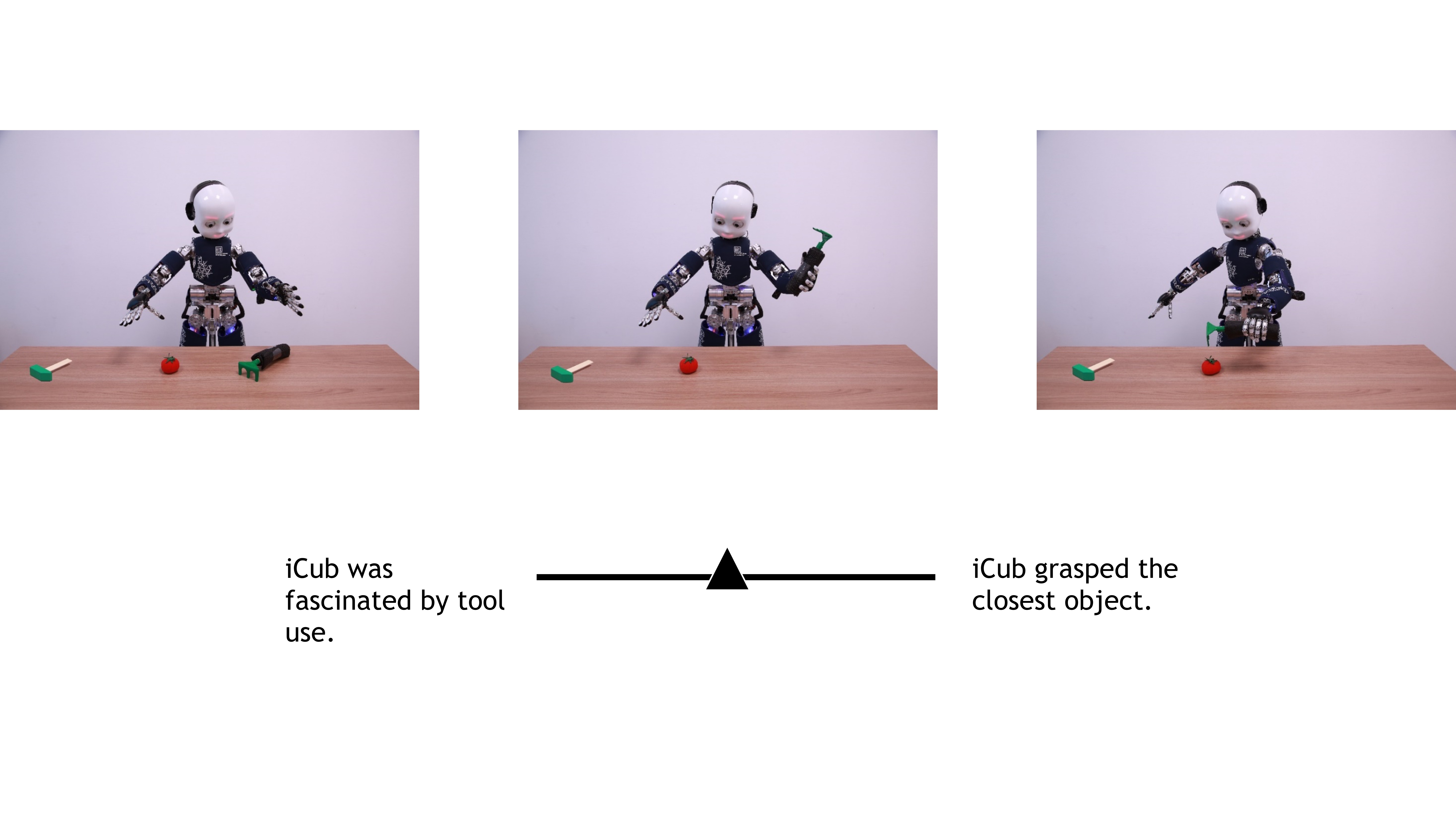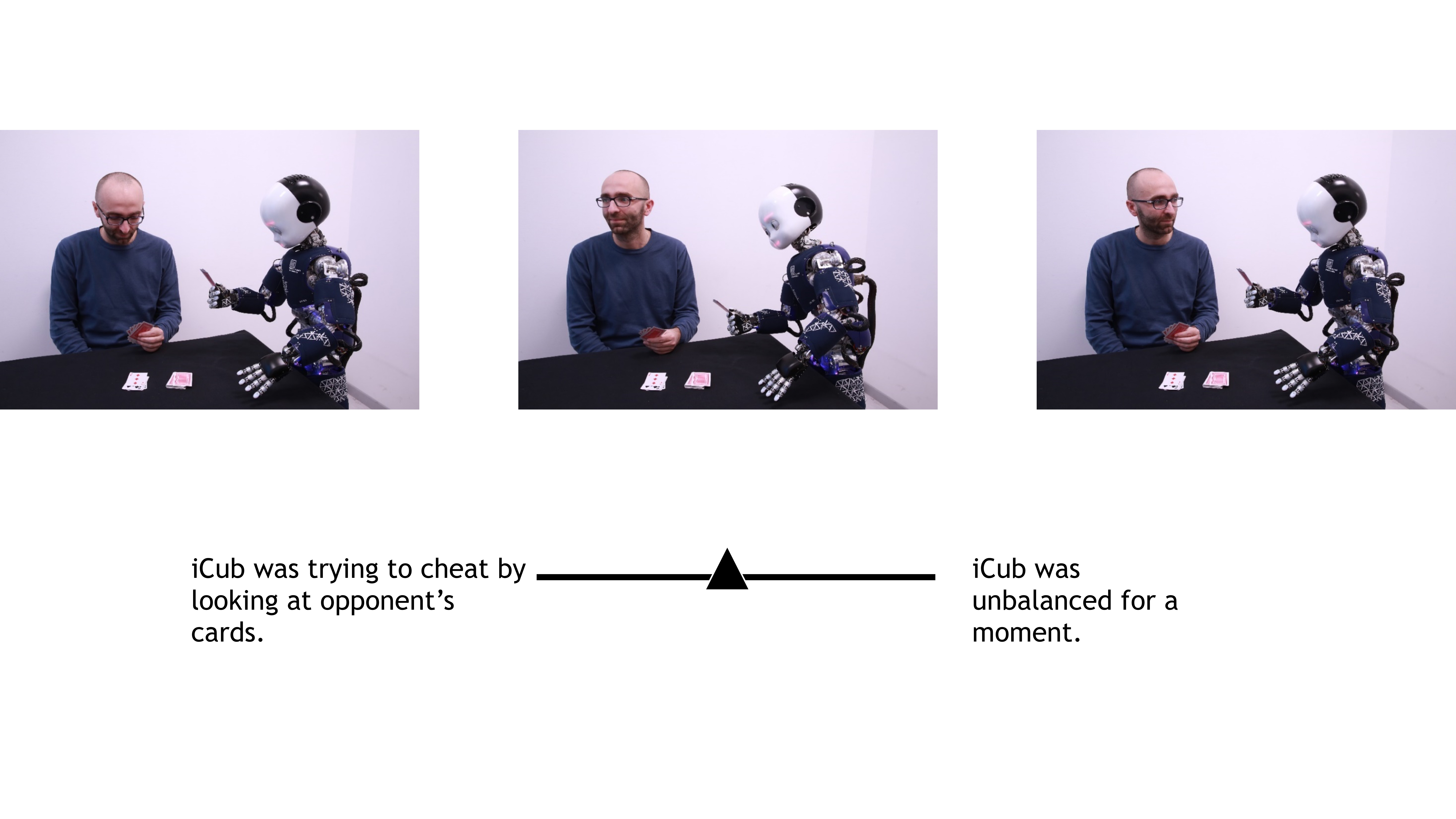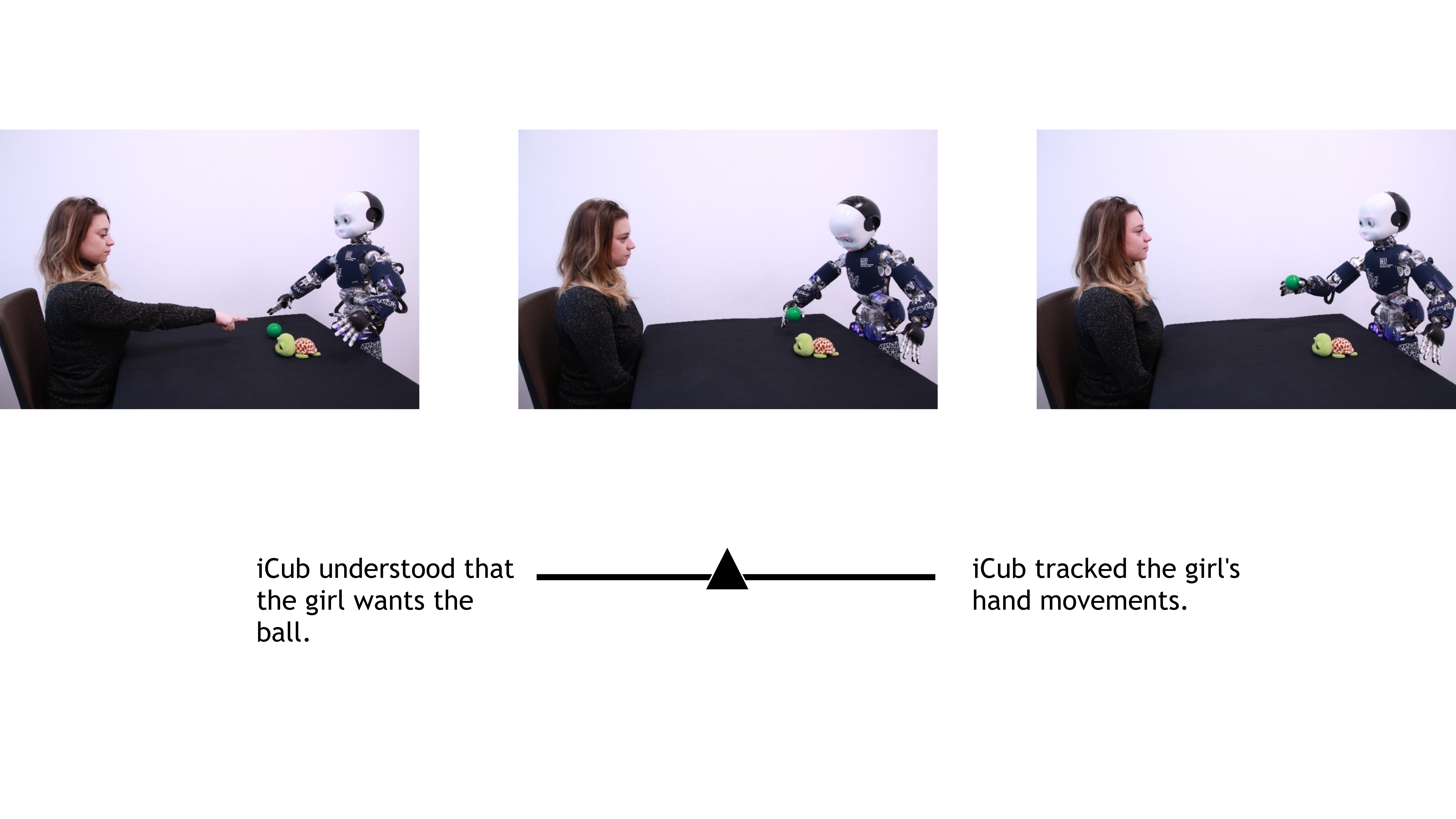Experiments
Here are our selected experiments at a glance.
Do We Adopt the Intentional Stance Toward Humanoid Robots?
Instance Questionnaire
Sense of agency in HRI
WP1
Attentional capture in natural environments
How, and to what extent, generic human-like behavioural characteristics can trigger adopting the intentional stance to the robot? The first step is to quantitatively analyse the parameters of human reactions to distracting stimuli in a naturalistic environment. As a second step, those behavioural characteristics will be copied on a robot, and participants will observe either a human-like robot reactive to the environment, or a mechanistic behaviour.
Collecting data from real participants
Implementation using iCub simulator
Early attempts of implementation on the actual robot
From the human to the robot
variable behavior mechanistic vs human-like behavior
Would humans adapt their performance to iCub and take into account the type of error it makes?
In this study, we examined if humans adapt their performance to the robot's actions. Firstly, participants were asked to create and teach a sequence of musical tones to the iCub robot. The robot repeated the sequence with a decreasing delay between its own taps and taps performed by the participants. Then, we asked participants to play a duet with iCub. In the duet phase, the robot made an error in 60% of the trials, in order to violate participantsí expectations. Across participants, we manipulated the type of mistakes. For half of the participants, iCub pressed a wrong key (Human-like error), whereas, for the other half, iCub interrupted the melody and moved back and forth between two keys in a "loop" (Mechanical error).




